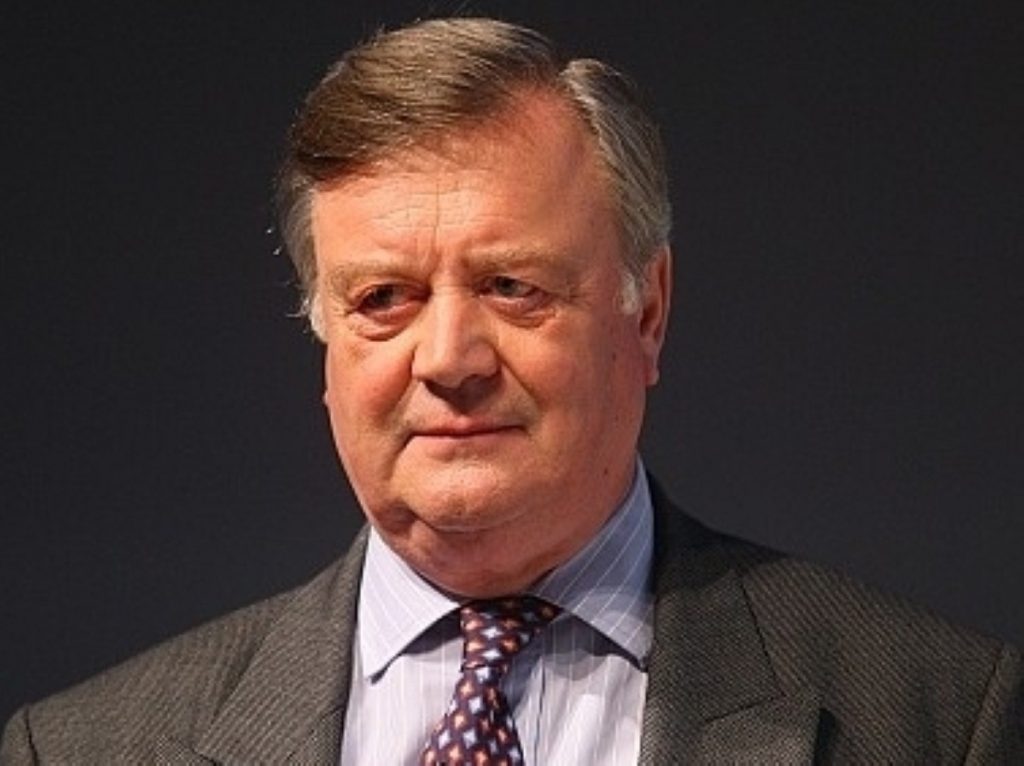Clarke: Prison doesn’t work
By Ian Dunt
Ken Clarke has triggered one of the most significant changes in Britain’s penal policy for a generation today, with a speech that casts doubt on the ability of prison to cut reoffending.
In a move which is bound to upset many of his own party’s supporters and enrage his fellow MPs, the new justice secretary told an audience at Kings College London that new ideas needed to be explored.
“My first priority is the safety of the British public,” he said.
“But just banging up more and more people for longer without actively seeking to change them is what you would expect of Victorian England.”
Mr Clarke – well-known for his willingness to adopt controversial political positions which chime badly with his party, such as opposing the Iraq war or supporting further integration with Europe – has said he was shocked by the number of people currently held in prison in the UK.
Last May, the prison population hit a record high of 85,201, while fear of crime remains at an all-time high.
Mr Clarke intends to use businesses and voluntary groups to keep prisoners on the straight and narrow. They would receive government funds on the basis of how many prisoners did not end up back in prison after three years.
Prison has often proved “a costly and ineffectual approach that fails to turn criminals into law-abiding citizens”, he said.
But Mr Clarke also announced that he is critical of short sentencing. Liberals, including the Liberal Democrats, have long been extremely dismissive of short sentences being imposed for relatively trivial offences, and argue these should be restricted to serious anti-social behaviour.
Activists and experts alike often argue that short prison sentences for trivial offences hurt the public finances and tend to worsen the problems they were originally intended to solve.
Mr Clarke will say that he wants to adopt a system of “intelligent sentencing” instead.
“This means prisons that are places of punishment, but also of education, hard work and change,” he said.
“It means rigorously enforced community sentences that punish offenders, but also get them off drugs and alcohol and into employment.”
Meanwhile, former justice secretary Jack Straw, who presided over a skyrocketing in the prison population, wrote an article in the Daily Mail today insisting that “prison does work”.
But it was former home secretaries John Reid and David Blunkett who faced most of Mr Clarke’s ire today.
They constructed their prisons policy with a “cheque book in one hand and the Daily Mail in the other,” he told the Today programme.
Liberal Democrat MP Tom Brake said: “Stopping vast numbers of people being locked up for non-violent crimes on short sentences was a key Liberal Democrat manifesto commitment.
“The Labour government liked to talk tough on crime while reoffending rates in this country rose sky-high. We know that short-term prison sentences don’t reduce reoffending or cut crime.”
Director of the Howard League for Penal Reform, Frances Crook, said: “We are greatly encouraged by the mature and frank nature of Ken Clarke’s comments today.
“Compared to the mindless rhetoric of successive home and justice secretaries, he is injecting some much needed common sense into this sensitive area of public policy.”
The Scottish National party (SNP) seized on the speech to highlight embarrassing divisions between the Westminster Tory party and the Scottish Conservatives.
Annabel Goldie, Scottish Conservative leader, and her party are set to vote against a presumption against sentences of less than three months today in the Scottish parliament.
Stewart Maxwell, a member of the Scottish parliament’s justice committee, said: “This is an incredible embarrassment for Annabel Goldie and the Holyrood Tories, who have been left high and dry by Kenneth Clarke.
“The question has to be asked if the UK government even bothered to tell Annabel Goldie about Kenneth Clarke’s speech – being delivered on the very same day as the key votes on the criminal justice bill on short sentences.”





-01.png)